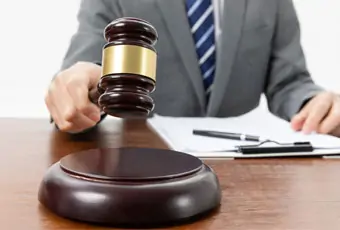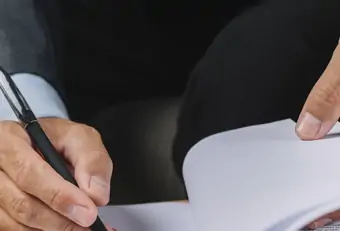Georgia Legal Malpractice Lawyer
Georgia Legal Malpractice Attorney
Legal malpractice can be one of the most complex aspects of the law. You use the legal system to solve conflicts, address malfeasance, and seek restitution. The problem, though, emerges when those same issues occur within the very system that is meant to address them.
Claims for legal malpractice are, in a way, an internal correction process within the legal system. Lawyers make mistakes, err in their duties and conduct, and very occasionally act with ill intent on the part of their clients. The legal system addresses these issues roughly the same as if anyone committed those same kinds of actions in any other profession.
Namely, the law states that those who have been victims of legal malpractice have a right to pursue restitution for what the malpractice has cost them. This is exactly the same as any other form of malpractice, such as medical malpractice in Georgia.
Of course, that pursuit is likely going to receive some resistance. After all, this would be a lawyer that you are pursuing action against. It is that same unique understanding of the law that led you to hire a lawyer in the first place and that could now be used against you when pursuing a claim. However, you can trust our experienced attorneys to know how to handle this kind of situation.
Work With a Skilled Georgia Legal Malpractice Lawyer From the Tatum Law Firm
The ideal way to give yourself a strong chance of proving your case is to work with another lawyer who understands the complexities of using the law to address an error that occurred within the legal process. In many situations, this even involves some arguing nested cases or a case within a case.
To do this successfully, you are going to need a skilled lawyer who is knowledgeable and can also ensure that everyone in the court is able to follow the complex nature of this type of case. At the Tatum Law Firm, we believe we have the knowledge and skill to do that very thing on your behalf.
What Is Legal Malpractice in Georgia?
Legal malpractice is a subset of general malpractice in Georgia. A situation is considered to be malpractice when a professional makes a significant mistake or fails to live up to their professional duty. In the case of legal malpractice, this refers specifically to a lawyer failing to act in accordance with the standards and expectations of their profession.
It’s important to realize that it is not just losing a case that makes something malpractice. A lawyer can act completely according to how they are expected, make all the prudent legal maneuvers necessary, do their due diligence, and otherwise behave perfectly professionally and still end up losing a case.
While a lost case could be the effect of malpractice, it is not an indicator of malpractice. Malpractice must have a component of shortcoming on the lawyer’s part that led to the lost case or other issue.
How Can You Prove Legal Malpractice in Georgia?
Proving legal malpractice can be one of the most complex legal processes. For anything to be malpractice, it needs to involve a professional shortcoming on the part of the defendant as well as some harm or injury suffered by the plaintiff.
This is similar to standard personal injury law, which malpractice is a subset of, where someone’s mistake must be tied to an injury. If there wasn’t some sort of harm or negative impact on the plaintiff, then there is not any malpractice. Since legal malpractice claims are often based on the outcome of prior legal proceedings, the complexity emerges when it needs to be argued that the outcome of the prior case would have been different had the lawyer’s error not occurred.
The procedure for winning a legal malpractice case involves proving the same basic elements as other personal injury cases in Georgia. However, there are some slight variations to account for the nuances of the legal system.
Here are the elements that must be proven in a legal malpractice case:
There Was a Duty to Care
The first element that needs to be established in any kind of personal injury case is a duty to care on the part of the defendant. This means showing that the defendant owed the plaintiff a certain level of duty and reasonable actions or inaction that would not expose them to undue risk. In the case of malpractice, this duty extends a little bit further in that it is the job of a professional to proactively apply the skills and knowledge to the needs of the client where the professional has been contracted to do so.
The idea, then, of what duty is owed to the plaintiff is molded into the attorney-client relationship. What needs to happen first is to prove that there was, indeed, an attorney-client relationship between the defendant and the plaintiff.
In most cases, this will be fairly easy as there likely will be some form of paperwork that both parties would have signed. Whether the lawyer has been put on retainer or there is some sort of an agreement for handling a specific case, that arrangement can be used to demonstrate the existence of the necessary relationship. In most legal malpractice claims, this is the easiest element to prove.
There Was a Breach of Duty
The second element that needs to be proven in a legal malpractice case is that the defendant made something called a breach of duty. Put simply, this means they didn’t live up to or perform the duty that was established in the attorney-client relationship.
Proving a breach of duty in a standard personal injury claim is often a more simple task than in a malpractice claim. The reason for this difference is the professional element. A regular personal injury claim will involve something where the average person has a decent understanding of what would be expected in a given circumstance. For instance, because most adults can drive or have driven, it’s not difficult to explain the duty a driver has to those around them and when they have breached that duty.
In the case of malpractice, though, the defendant is a professional involved in a field, and most people who are not in that field wouldn’t necessarily have a strong understanding of what to expect the duty of that professional to be beyond some basic concepts. The challenge for the plaintiff’s lawyer, then, is the need to explain to the court what the duty of the profession entails, what the defendant did or didn’t do, and how that action or inaction fell short of their professional duty.
To prove the breach of duty, a plaintiff may rely heavily on the use of expert witnesses. This generally will mean bringing in a professional peer of the defendant to explain what the standard is in the profession and how the defendant’s behavior fell short of that standard.
For instance, in a medical malpractice case where a doctor is the defendant, bringing in a doctor in the same field of medicine as an expert witness can help prove the breach. In a case of legal malpractice, this would mean bringing in a lawyer who has a particular focus on the kind of law that is relevant to the case.
This lawyer would need to not have any ties to either the defendant or plaintiff or any other conflict of interest. It may be a lawyer who practices that particular kind of law, or it could even be a teacher of that law who is well aware of the current trends and expectations of lawyers within that aspect of the law.
Some Kind of Harm Occurred Because of the Breach
Once the plaintiff’s side has been able to prove there was a breach in the duty to care, they need to be able to prove that the breach caused some harm or injury to the defendant. In most personal injury cases, even most malpractice cases, this process is much more simple and straightforward as the injury is present and easy to recognize.
The damage a car accident has caused is easily recognizable. The medical bills, property damage, and lost wages are easy to recognize. Even mental and psychological anguish can be easier to demonstrate. All of these costs have a clear before and after that can be referenced to show what has happened.
In a legal malpractice case, proving harm or injury is not the process of proving how things were before compared with how they are after. In those cases, the reasonable assumption is that had the accident not happened, the harm wouldn’t have occurred. In a legal malpractice case, the plaintiff’s lawyer needs to prove that their client would have had a more favorable outcome if the breach of duty hadn’t occurred. They need to be able to make real for the court what would have occurred if the defendant had lived up to their duties.
For most personal injury claims, if a breach did not occur, the status quo just continues forward, and that can be easier for the court to visualize. In a legal malpractice claim, the plaintiff would also be materially better off without the breach. However, that is a more challenging dynamic for the court to see, and the plaintiff’s lawyer will need to have a real talent for making that dynamic real for the court.
This process is especially complex when the underlying issue that has created the claim is also a court case. It means the plaintiff’s lawyer will effectively be arguing two cases at once. They are going to need to argue the claim at hand and argue how the original case would have gone without the breach of duty.
This also creates an awkward dynamic for the defendant, who argued in favor of the plaintiff in the original case, now being on the opposition side, as it’s in their interest to argue that the breach had no effect on the outcome.
Remember that without some form of harm or injury, there is no malpractice — just as a nurse giving a patient slightly too much pain medication has committed a breach but not malpractice if the extra medication didn’t do any harm to the patient. If the defendant can show that their error had no effect on the outcome of the case, they did not commit malpractice.
One of the most important things that the plaintiff’s lawyer will need to do in all this is to make sure everyone is clear about where the case is at with the complexity of all the details. It is critical that you have a lawyer who can understand all the elements of the law sufficiently to make their case, have a depth of knowledge through a thorough investigation of your original claim, and have a presence able to command the courtroom.
Legal malpractice claims can and have been won, but it takes careful preparation and the right lawyer to do so. We believe you will find that combination to give your case its strongest stance at the Tatum Law Firm.
What Can Be Compensated for in a Georgia Legal Malpractice Claim?
The compensation in a legal malpractice case runs into the same issue that existed in proving the breach as the cause of an injury. The compensation in a standard personal injury case will involve showing what a plaintiff has lost as a result of the breach of duty.
The exception to that is lost wages, but even there, previous wages can be indicative of what happened. In the case of legal malpractice, though, it becomes the opposite, where it must be shown what a plaintiff has failed to gain because of the breach of duty. There are times when this could be very similar if the breach occurred in the course of some personal injury claim.
However, there are still subtle differences, and in some cases, it may be much more emphasized if the breach had something to do with a situation like causing a business deal to fall through.
Fundamentally, though, whatever the plaintiff’s lawyer argues would have been gained must have a direct line to the breach. In other words, they must be able to show exactly what the plaintiff could have reasonably expected to gain if the breach had not happened.
There are a few costs that are more reminiscent of a standard personal injury law. Things like legal fees and out-of-pocket expenses could also apply to a standard personal injury claim as well as a legal malpractice case. Here are some of the components for which compensation could be sought in a legal malpractice claim:
- Financial Losses: There are several different ways that an attorney’s negligence could have led to financial losses for which you can seek restitution. It could be that a claim was lost altogether or that the award was not as sizable as it could have been had the malpractice not occurred. Similarly, it’s possible that a settlement could be less than it should have been had a breach of duty not happened.
- Opportunity Loss: There are times when malpractice leads to the loss of some financial opportunity. For instance, the failure of a lawyer to file a claim before the statute of limitations ran out would mean missing the opportunity to file the claim altogether. The plaintiff may be able to recover damages for what the claim would have resulted in collecting.
- Attorney’s fees, legal costs, and out-of-pocket expenses: There are a number of expenses that could have been incurred related to dealing with the original case that could be recoverable in some circumstances.
- Emotional Distress: It’s not common that damages for emotional distress are awarded in a legal malpractice case, but there are some circumstances where that may be possible. If the financial loss creates a significant amount of stress for someone, it could result in compensation.
- Punitive Damages: Punitive damages are not often awarded for legal malpractice claims. However, if the defendant’s behavior was especially egregious or possibly even malicious toward the plaintiff, these damages could be awarded as a deterrent and punishment.
What Can a Georgia Legal Malpractice Lawyer Do?
Working with the right lawyer can be essential to proving your legal malpractice claim. The first thing your lawyer will typically do is a thorough investigation. This would heavily involve performing their own investigation of whatever legal matter in which the potential malpractice was involved.
In many cases, this means a previous civil claim. They will have to investigate that claim as though they are taking it on for the first time. Only with that thorough understanding will they be able to recognize how the breach of duty by the original lawyer could have altered the outcome.
Since they are going to need to be prepared in court to potentially argue that case in addition to the legal malpractice case, it’s important that you work with a lawyer with impeccable investigative skills.
Your lawyer is also going to be in communication with your original lawyer about the possibility of a settlement if something can be arranged that you both can agree to. In many cases, a settlement may be preferable to a court case.
A civil claim in court can be costly in terms of money, but the time can be even more significant for many people. Often, both parties don’t want to have to wait months or even years to have everything settled, and an agreeable settlement might be able to be arranged. An agreement also avoids the risk of not getting a favorable court ruling. In cases as complex as legal malpractice, there may be some benefit to avoiding that risk.
Still, if you aren’t happy with any arrangement that is offered, it is your right to take the claim to court. If that’s the case, it’s your lawyer’s job to represent you to the fullest extent of their abilities. They will need to demonstrate to the court what duty is expected of an attorney and how the defendant fell short of that duty. They will need to persuade the court of just what harm was done and the costs that were incurred as a result, even if that means effectively relitigating a prior case.
Additionally, your attorney will need to ensure they can help the court process the complexity involved in the case. It’s critical to make sure you have a lawyer you feel confident will be able to handle the full spectrum of what these claims entail. We hope you’ll give the Tatum Law Firm a chance to show you that we can.
Legal Malpractice Has a Cost; Let Us Help You Recover Yours
One of the roles of a lawyer is to act as someone’s representative in a legal matter, and that’s a tremendously important idea. When you represent someone, you should be pursuing their interests as though they are your own. This means using your knowledge and experience to their benefit while approaching the situation with the character and diligence that is necessary to properly represent someone.
Maybe most importantly, when you’re representing someone in a legal dynamic, you are often involved in some of the most serious issues a person will deal with in their lives. You owe it to them to approach the situation with the same carefulness and attention to detail that they would have themselves.
The significance of representing someone is one of the reasons legal malpractice can be so frustrating. When a lawyer makes a mistake in their diligence and not performing their professional duty with the conduct they should, it’s as though they haven’t taken that role of representing someone as seriously as it should be.
Honest mistakes do happen, but when dealing with the most important elements of their lives, people tend to use extra caution to avoid those mistakes. A lawyer should do the same.
When they don’t do that and make an error, you are owed compensation and have the legal right to pursue it. At the Tatum Law Firm, we help people seek that restitution. Get in touch with us today if you think you may have a legal malpractice claim.






